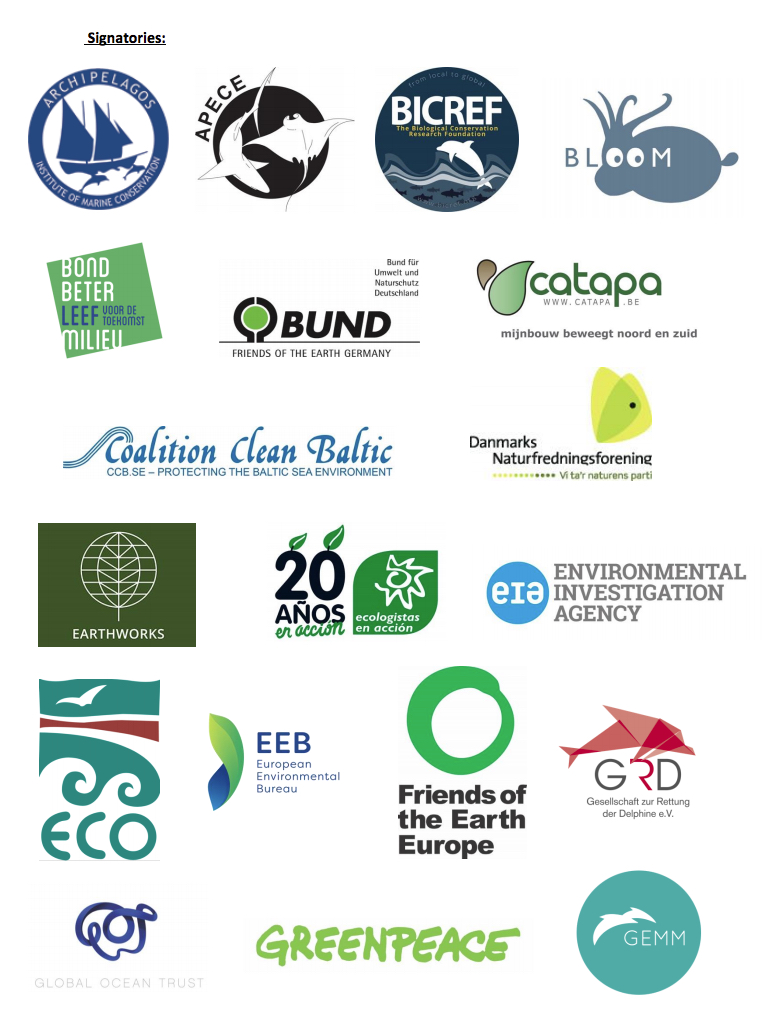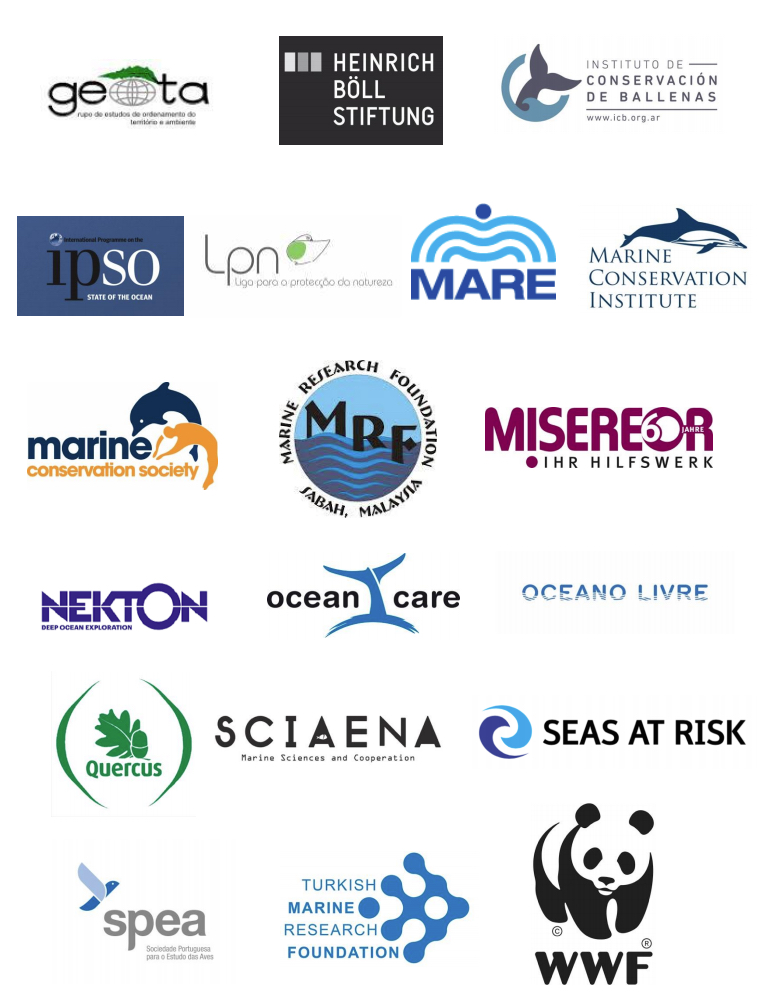Protect the marine environment from harm:
Submission on the ISA’s Draft Strategic Plan
27 April 2018
This is a submission in response to the call for comments on the draft Strategic Plan of the International Seabed Authority, which was requested by the Council in ISBA23/A/13. The undersigning organisations would like to focus on some fundamental questions that need to be addressed first and foremost, and which we would like to see integrated in the ISA Strategic Plan.
We are deeply concerned about the potentially irreversible losses of marine biodiversity which will likely result from deep-sea mining. While much remains unknown about deep-sea ecosystems, recent science calls for a fundamental rethinking of the course set towards allowing commercial deep sea mining in the short term. A recent collective letter published in Nature Geoscience concluded that most mining-induced loss of biodiversity in the deep sea is likely to last forever on human timescales, given the very slow natural rates of recovery in affected ecosystems (1). Another recent article in Frontiers in Marine Science concludes that the mining industry cannot deliver an outcome where there is no loss of biodiversity, as a result of the vulnerable nature of deep-sea environments to mining impacts, currently limited technological capacity to minimize harm, significant gaps in ecological knowledge, and uncertainties of recovery potential of deep-sea ecosystems (2).
With the risk of irreversible and significant environmental impacts, and socio-economic benefits that are uncertain and inevitably short term, deep-sea mining imposes a serious threat to global sustainability. Deep-sea mining has no place in the world’s Agenda 2030 for sustainable development. We must prioritise sustainable alternatives and avoid locking our economy into this high risk technology.
Alternatives to deep-sea mining are available, and can be found in the transition of economies towards more sustainable approaches. Reducing the demand for raw materials through better product design, sharing, re-use, repairing and recycling, the development of new materials, a transition to smart energy and mobility systems and structural changes in consumption patterns and lifestyles are key to the solution.
Up to 90% of the world’s electronic waste is illegally traded or dumped and less than 16% of global e-waste volumes are estimated to be recycled in the formal sector, despite the valuable materials contained within (3). In Europe alone, for example, 160 million mobile phones are discarded every year. Each device, typically weighing less than 150 grams, is packed with valuable materials such as gold, silver, and rare earth metals (4). This represents an enormous quantity of gold and other metals gone to waste. These figures indicate the huge potential of policies to increase resource efficiency world-wide, and the importance of focusing on e.g. urban mining instead of deep-sea mining.
The Sustainable Development Goals (SDGs), and in particular SDG 12 “Ensure sustainable consumption and production patterns”, and SDG 14 “Conserve and sustainably use the oceans, seas and marine resources” set the global frame for rethinking our economy. Unless we stop and think, we risk squandering one of our most precious ecosystems, which has a vital role to play in the health of our planet, for an obsolete dream of boundless growth.
Article 145 of the Law of the Sea Convention clearly requires measures to ensure effective protection for the marine environment from harmful effects. In light of these obligations, we see with great concern that the Draft Strategic Plan proposes to do so through the highest practicable standards of protection of the marine environment. We believe that such a mandate is not consistent with the above-mentioned obligations. It is also important that the Mission Statement has the common heritage of humankind at its heart, including the interests of future generations and the protection and preservation of the marine environment.
We call the ISA and the international community to provide the space for a fundamental and democratic reflection about the need (or not) for deep seabed mining and its long term sustainability implications. Deep seabed mining needs to be furthermore framed in the ongoing discussions about the need for a new global mechanism to more effectively plan resource supply.
As the global steward of the world’s ocean heritage the ISA must prioritise conservation of the deep sea, the rights of coastal communities and the rights of humankind as a whole.
NGOs listed below, acutely concerned about the future of the deep sea, therefore call on the International Seabed Authority:
➢ to amend the mission contained in its Strategic Plan so that the obligation for any activities in the Area to ensure effective protection for the marine environment from harmful effects is the fundamental objective of the ISA;
➢ to act on civil societies’ requests for fundamental reforms of the ISA operations, including among others the establishment of an Environment Committee, the opening up of the Legal and Technical Committee for observers, and public access to data and information;
➢ to establish a process to investigate comprehensively and in a participatory and science-based manner the fundamental questions about the need for deep seabed mining and its long term consequences for the planet and humankind, ensuring that more sustainable alternatives are fully assessed and fed into the debate in an open and transparent manner;
➢ in the meantime, to end the granting of contracts for deep-sea mining exploration and to not




